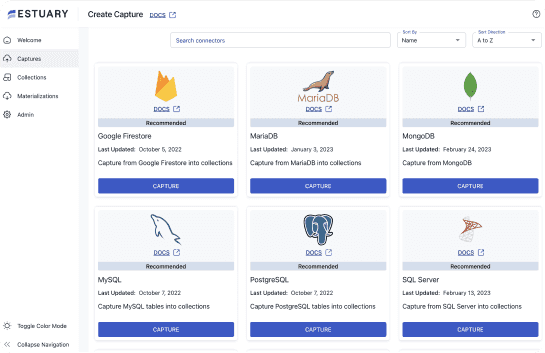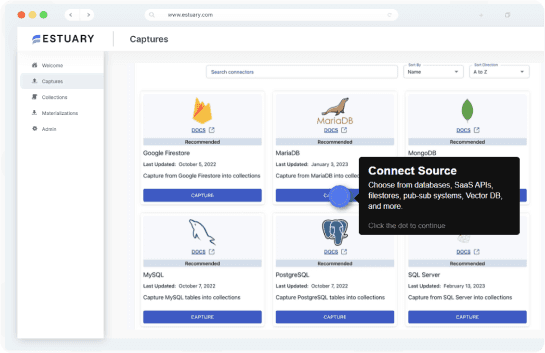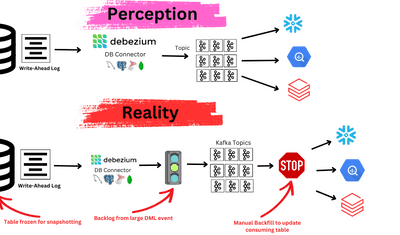
Data integration has become increasingly crucial for businesses in today's data-driven landscape. Hevo and Airbyte are two leading platforms that offer efficient and reliable ETL (Extract, Transform, Load) solutions. While both tools excel in simplifying data integration processes, understanding their critical differences can help you make an informed decision when choosing the right solution for your organization.
In this article, we’ll delve into six key areas where Hevo and Airbyte differ, so you can evaluate which platform best aligns with your specific requirements.
Scalability and Performance
Hevo and Airbyte offer robust solutions with key differences in this regard. Hevo provides horizontal scalability and supports auto-scaling, ensuring optimal performance and resource utilization as data volumes grow. It excels in near-real-time data processing, allowing for low-latency ingestion and efficient transformation.
On the other hand, Airbyte also offers horizontal scalability through its microservices-based architecture, enabling seamless scaling by adding or removing containers. It supports both batch processing and real-time ingestion, providing flexibility based on specific requirements. Both platforms efficiently handle large data volumes by utilizing parallel processing and distributed computing techniques.
Hevo's architecture is designed to handle massive datasets and scale resources dynamically, while Airbyte's distributed architecture ensures efficient data handling with parallel processing and load-balancing capabilities.
When choosing between Hevo and Airbyte, it is essential to consider your organization's specific scalability and performance needs to make an informed decision.
Data Source Connectivity
Hevo and Airbyte differ in their supported data sources, connectors, ease of setup, and management capabilities.
Hevo offers an extensive range of connectors for popular databases, cloud services, and SaaS applications, along with support for API-based integrations. Its user-friendly interface simplifies the setup process, and automated schema detection and transformations reduce the effort required.
Airbyte provides a growing library of connectors contributed by the community, covering databases, file formats, and APIs. It emphasizes simplicity with an intuitive web-based interface and features like schema mapping and transformation functions.
While Hevo offers pre-built data models and change data capture (CDC) support, Airbyte's open-source nature allows for customization and the creation of connectors. Assess your specific data source requirements and the ease of setup and management to determine which tool suits your needs.
Data Security and Compliance
Data security and compliance are vital considerations when selecting an ETL tool for data integration. When comparing Hevo and Airbyte, there are notable differences in terms of data encryption, privacy measures, and compliance with regulations.
Hevo offers robust data security features, including data encryption both at rest and in transit, ensuring the confidentiality and integrity of sensitive information. It also provides advanced features such as data masking, role-based access control, and auditing, enabling fine-grained control over data access and ensuring compliance with regulations like GDPR and CCPA.
Airbyte also prioritizes data security and compliance, with encryption measures and access controls in place. While both platforms offer solid security features, Hevo's comprehensive approach to data protection and compliance with various regulations sets it apart.
Evaluating the data security and compliance capabilities of Hevo and Airbyte, considering specific regulatory requirements, is crucial for making an informed decision for your organization.
Monitoring and Alerting
Now let's shift our focus to the next critical aspect: monitoring and alerting. Hevo provides comprehensive monitoring features that enable users to track the performance of their data pipelines in real time. It offers a user-friendly dashboard that displays key metrics, such as data throughput, latency, and error rates.
Additionally, Hevo allows users to set up custom alerts to notify them of any data pipeline failures or anomalies, enabling proactive troubleshooting and minimizing downtime. On the other hand, Airbyte also provides robust monitoring capabilities, including real-time monitoring of data pipelines and metrics.
Airbyte offers customizable alerts that can be configured to notify users of any issues or disruptions in data integration workflows. Its proactive monitoring features help detect and resolve issues promptly, ensuring data pipelines operate smoothly.
Pricing and Cost
Hevo offers a transparent pricing structure based on factors such as data volume, connectors, and additional features. It provides flexible plans tailored to different business needs, ensuring cost-effectiveness.
On the other hand, Airbyte offers a cloud package, which is ideal for cloud-centric businesses and small projects. Additionally, Airbyte offers an Enterprise version with advanced features and support for larger-scale deployments. It is important to carefully evaluate the pricing models of both Hevo and Airbyte, considering factors such as your data volume, required connectors, and any additional features needed to make an informed decision.
Learn more in detail: Airbyte vs Hevo
Customer Support and Documentation
Hevo and Airbyte differ in terms of the availability, quality, and resources they provide in this regard. Hevo offers comprehensive customer support with dedicated teams available to assist users. They provide documentation resources, tutorials, and a supportive community to help users navigate and make the most of the platform. User feedback and satisfaction with Hevo's customer support have been positive, highlighting their responsiveness and expertise.
On the other hand, Airbyte offers customer support for both its free and paid packages, with additional enterprise-level support available for Airbyte Enterprise customers. They also provide documentation resources and tutorials to assist users. User feedback regarding Airbyte's customer support has been generally positive, with users appreciating their prompt assistance.
Estuary Flow: A Real-Time Alternative for Airbyte or Hevo
Hevo and Airbyte are both powerful ETL tools with their strengths and weaknesses in areas such as scalability, data source connectivity, security, monitoring, pricing, and customer support. However, to further enhance your data integration capabilities, it’s worth exploring Estuary Flow — an alternative powered by real-time ETL.
Estuary Flow distinguishes itself by offering a comprehensive data transformation layer in addition to the standard ETL capabilities. Unlike Hevo and Airbyte, which primarily focus on data extraction and loading, Flow allows you to manipulate and refine your data in-flight, increasing its business value as it moves through the integration pipeline.
Flow's transaction model ensures data integrity during the transformation process, minimizing the risk of data loss or corruption. This added layer of security is particularly valuable for organizations with critical production workloads, providing peace of mind when it comes to data accuracy and reliability.
The streaming-based architecture of Flow enables horizontal scalability, making it suitable for workloads of all sizes. This flexibility is advantageous for businesses anticipating data volume growth or dealing with fluctuating workloads. Flow's ability to dynamically scale resources makes it an attractive choice, especially for smaller organizations seeking a cost-effective and agile solution.
Flow's collaborative features facilitate teamwork and collaboration among various stakeholders involved in the data integration process. Whether it's data analysts, engineers, or other team members, Flow allows seamless collaboration, enhancing productivity and efficiency.
Consider exploring Estuary Flow as an alternative to Hevo and Airbyte, leveraging its advanced data transformation capabilities, transactional integrity, scalability, and collaborative features. With Flow, you can elevate your data integration processes and empower your organization to derive actionable insights from your data more effectively.
Start with a free Flow account here!
Looking for more insights into data integration solutions? Dive deeper into comparison between Hevo Data and other leading platforms by exploring these additional blogs:
- Explore how Hevo Data stacks up against Stitch in our comprehensive comparison: Hevo vs. Stitch
- Hevo vs. Fivetran
- Discover the advantages of cloud ETL tools and see how Hevo Data measures up in this competitive space: 15 Best Cloud ETL tools to try

About the author
With over 15 years in data engineering, a seasoned expert in driving growth for early-stage data companies, focusing on strategies that attract customers and users. Extensive writing provides insights to help companies scale efficiently and effectively in an evolving data landscape.












